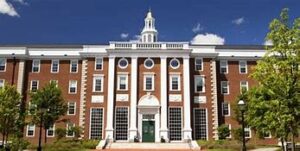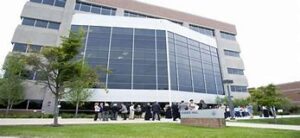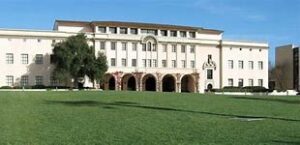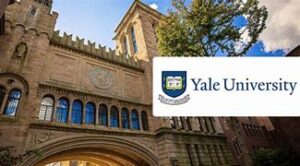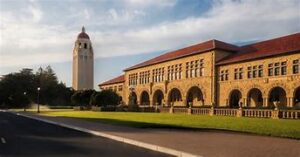Located in the heart of New York City, Columbia University stands as one of the most prestigious and influential institutions of higher learning in the world. Established in 1754, it is the fifth-oldest university in the United States and is recognized globally for its commitment to academic excellence, innovative research, and intellectual engagement. Columbia has long been a beacon of intellectual achievement,Big Apple Brilliance: Columbia University – Excellence, Innovation, and Global Impact shaping the course of history through its academic programs, groundbreaking research, and illustrious alumni.
This comprehensive exploration of Columbia University delves into its history, academic offerings, research contributions, vibrant campus life, and the significant impact it has on the world. As a “Big Apple Brilliance,” Columbia embodies the dynamic spirit of New York City, blending tradition with innovation to shape future leaders and thinkers.
A Legacy of Excellence and Tradition
Founded as King’s College by royal charter in 1754, Columbia University was initially established to provide an elite education to the young men of the American colonies. It was one of the nine colonial colleges that were established before the American Revolution. In 1784, following the end of the Revolutionary War, Columbia was renamed Columbia College and began its journey as a national institution of higher learning. In 1896, it officially became Columbia University.
Throughout its history, Columbia has been at the forefront of academic and social change. The university has produced a remarkable number of leaders, thinkers, and innovators, including U.S. presidents, business magnates, Nobel laureates, and cultural icons. Its legacy is not just a product of its academic prowess but also its influence on the development of American society and culture.
Academic Excellence Across Disciplines
Columbia University’s academic rigor and the breadth of its offerings are among the primary reasons it is ranked as one of the top universities in the world. The university’s academic structure is organized into undergraduate and graduate schools, each with its own specialized focus.
Undergraduate Education
Columbia offers a unique and rigorous undergraduate education, with a focus on developing intellectual curiosity and critical thinking. The undergraduate program is based on the Core Curriculum, a set of courses designed to foster broad knowledge across the humanities, social sciences, and natural sciences. This Core Curriculum includes classes such as Literature Humanities,Big Apple Brilliance: Columbia University – Excellence, Innovation, and Global Impact Contemporary Civilization, and University Writing, which lay the foundation for intellectual exploration.
Columbia’s academic structure also allows undergraduates to choose from over 80 majors across various fields, including the humanities, social sciences, natural sciences, engineering, and business. Whether studying economics, political science, or molecular biology, students at Columbia benefit from small class sizes, close relationships with faculty, and access to world-class resources.
Graduate and Professional Programs
Columbia University’s graduate and professional schools are some of the most esteemed in the world. The graduate programs are diverse, offering advanced degrees in virtually every field of study.
- Columbia Law School is ranked among the top law schools globally, producing some of the nation’s most prominent legal minds.
- Columbia Business School is consistently ranked as one of the best business schools in the world, attracting leaders in business, finance, and entrepreneurship.
- The School of International and Public Affairs (SIPA) trains future leaders in global policy and governance, with graduates frequently working in top international organizations and governmental agencies.
In addition to these schools, Columbia also offers highly regarded graduate programs in fields like medicine, education, social work, architecture, journalism, and more.
Innovative Research and Contributions to Knowledge
Columbia University has long been known for its contributions to cutting-edge research and intellectual discovery. Its research is diverse and spans multiple disciplines, from the sciences and engineering to the humanities and social sciences. The university’s faculty and researchers have made groundbreaking discoveries that have transformed industries and solved critical global issues.
Research Institutes and Centers
Columbia hosts more than 100 research institutes and centers, fostering interdisciplinary collaboration and innovation. Notable research institutes include the Earth Institute, which focuses on sustainability and global environmental challenges, and the Zuckerman Institute for Mind Brain Behavior, which explores the complexities of the human brain and behavior.
The Columbia Global Centers are located in major cities around the world, including Beijing, Paris, and Istanbul, promoting research and collaboration on global challenges. These centers serve as hubs for university-wide interdisciplinary work, emphasizing Columbia’s role as a global leader in research and education.
Notable Research Contributions
Columbia’s research accomplishments are numerous. In the field of science, the discovery of the structure of DNA by James Watson and Francis Crick at the university revolutionized biology. The university has also been instrumental in the development of the atomic bomb, with the Manhattan Project having significant ties to Columbia’s physics department.
The university’s contributions to the humanities and social sciences are also profound. Columbia’s scholars have made lasting impacts on fields like economics, history, literature, and philosophy. For instance, the renowned economist Joseph Stiglitz, who won the Nobel Prize in Economic Sciences, is a member of the university’s faculty.
The Campus and Its Vibrant Community
Columbia University is located on a 32-acre campus in the Morningside Heights neighborhood of Manhattan. Its location in New York City gives students access to one of the world’s most vibrant and diverse cities, enhancing their educational experience both inside and outside the classroom.
Campus Architecture and Landmarks
The campus is home to a mixture of historic and modern architecture. Notable landmarks include Low Memorial Library, a grand Beaux-Arts building that serves as the university’s symbolic heart, and Butler Library, one of the largest academic libraries in the world. Modern structures like the Columbia Business School and the Lenfest Center for the Arts reflect the university’s commitment to innovation and growth.
The Statue of Alma Mater, located in front of Low Library, stands as a symbol of Columbia’s rich history and its role as an intellectual hub. The campus is also home to numerous green spaces and student gathering areas, which provide a respite from the fast-paced nature of New York City.
Campus Life and Extracurricular Activities
Columbia University has a vibrant and diverse campus life. With more than 500 student organizations, ranging from academic clubs and cultural organizations to service groups and performance arts ensembles, there is something for everyone at Columbia. Students are encouraged to engage in extracurricular activities, which complement their academic pursuits and foster personal development.
The Intercollegiate Athletics Program allows students to participate in a wide variety of sports, from football to fencing. The university’s athletic teams, known as the Columbia Lions, compete in the Ivy League and have a rich history of success.
Diversity, Equity, and Inclusion at Columbia
Columbia University is committed to fostering an inclusive environment for students, faculty, and staff from all backgrounds. The university strives to create a community that is diverse in terms of race, ethnicity, socioeconomic status, gender, and sexual orientation.
Support for Underrepresented Groups
Columbia’s Office of University Life works to create an inclusive and supportive environment for all students. The university provides resources such as mentorship programs, cultural centers, and student organizations to ensure that underrepresented groups have a voice and a presence within the university community.
Financial Aid and Accessibility
Columbia University is dedicated to making education accessible to all qualified students, regardless of financial circumstances. The university offers need-blind admissions for U.S. students and meets 100% of demonstrated financial need through a combination of grants, scholarships, and work-study opportunities.
Global Impact and Alumni Network
Columbia University has an extensive global reach. Its alumni network, one of the largest and most influential in the world, includes individuals who have made significant contributions in various fields, such as politics, business, science, arts, and media.
Notable Alumni
Columbia’s alumni list includes:
- Barack Obama, former President of the United States
- Kofi Annan, former Secretary-General of the United Nations
- Ruth Bader Ginsburg, U.S. Supreme Court Justice
- Warren Buffett, billionaire investor
- Meryl Streep, acclaimed actress
These individuals, along with many others, reflect the university’s commitment to producing leaders who have a lasting impact on the world.
Global Outreach
Through programs like the Columbia Global Centers, the university extends its influence beyond the U.S. and engages in international dialogue and collaboration. Columbia also offers a variety of study-abroad programs, internships, and fellowships that allow students to gain global perspectives and prepare for careers in an interconnected world.
Conclusion
Columbia University stands as a shining example of “Big Apple Brilliance.” It combines intellectual rigor, innovative research, Big Apple Brilliance: Columbia University – Excellence, Innovation, and Global Impact an urban campus environment to offer a transformative educational experience. With its rich history, diverse academic programs, and commitment to societal impact, Columbia continues to shape future leaders who will navigate the complexities of an ever-evolving world. The university’s legacy of excellence, coupled with its forward-thinking vision, ensures its continued prominence as one of the world’s leading academic institutions.




